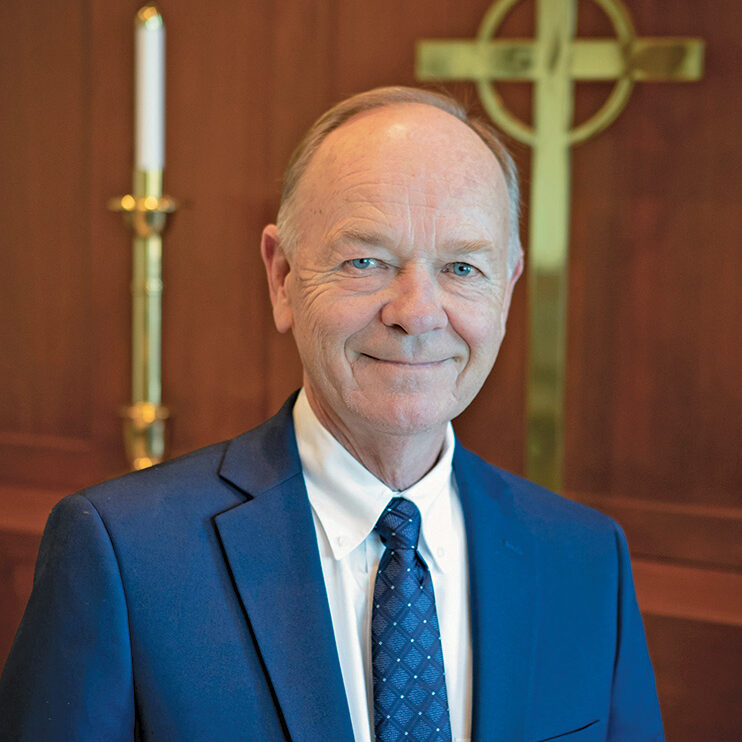 |
From time to time I receive questions about why our synod puts a particular doctrine into practice the way we do. I had such a question recently about closed (or sometimes called “close”) Communion. The questioner asked, “Who are we to deny the Lord’s Supper to someone who desires it?”
In keeping with what Scripture says, we believe and teach that we should participate in the Lord’s Supper only with those who confess the same beliefs that we do. It’s called “closed” Communion because it is not open to everyone. It’s sometimes called “close” Communion because it is a public expression of our common faith with those who participate with us.
First, we should be clear what we are not saying by practicing closed Communion.
Practicing closed Communion does not mean that we are questioning whether someone outside of our fellowship is a Christian or has faith in Christ. People who belong to false-teaching churches can have saving faith despite the false doctrine taught in those churches.
Practicing closed Communion does not mean that we believe that we are somehow better than other people, as if we deserve to receive the Lord’s Supper and they do not.
Practicing closed Communion does not mean that we are claiming to read what is in someone’s heart. Rather, we take people at their word. We recognize that membership in a church that has departed from the truth of Scripture is a public profession that a person accepts the false teachings of that church.
So, why do we practice closed Communion? The answer is simple: love.
Our love for the Word of God leads us to do all we can to avoid any activity that would compromise his truth. The reception of Communion is a public act that demonstrates a oneness or unity of faith and belief in the doctrines of Scripture.
Our love for Christians who have some false beliefs compels us to point out those errors. Joining in Communion with someone who holds false beliefs sends a message that doctrinal error and false beliefs are not important and can be overlooked. It encourages them in these false beliefs. Our love for people outside of our fellowship—possibly members of churches that deny the real presence—leads us not to participate with them in something that might harm them spiritually.
Scripture also teaches that for the Lord’s Supper to be spiritually beneficial, a person needs to be able to “examine” oneself. That is possible only when someone has been fully instructed in the Christian faith. Such instruction enables a person to sincerely confess one’s sinfulness and to recognize that Jesus is really present in the Lord’s Supper, giving us his true body and blood.
Finally, our love and concern for our own faith lead us to want to avoid false teaching and those who adhere to it and not join with them in receiving the Sacrament. Minimizing or overlooking false teaching as if there is nothing to be concerned about would place our own faith in danger.
Maybe instead the question should be, “Why would WELS want to do anything that compromises the truth of God’s Word and potentially causes spiritual harm to other Christians?”
The answer is love. What’s love got to do with closed Communion? Everything!
Author: Mark Schroeder
Volume 107, Number 03
Issue: March 2020
- The mission of WELS schools
- Blessings in tragedy
- Confusion or comfort?
- Never take it for granted
- A season of miracles
- Don’t miss the point
- Another humbling experience
- Our cross and crown
- The public ministry and the divine call
- No fear of bad news
- Big challenge, bigger blessings
- Our worldwide fellowship
- Seize the opportunities
- The Lord takes care of his church
- Savor the rain
- Up close and personal
- It’s never too early
- Thanks for not giving
- Hope for the future
- Our task is not over
- Update on WELS’ effort in Vietnam
- More workers for a bountiful harvest
- 150 years of fellowship
- A unique system of schools
- God’s cure—for everything
- Lenten repentance, Lenten appreciation
- Pray for us
- Plan with wisdom and faith
- Purposeful discussions
- Upholding biblical values
- President’s message: To judge or not to judge
- President’s message: A field ripe for harvest
- President’s message: Thoughts about the new hymnal
- President’s message: Cooperating in externals
- President’s message: Canceling the cancel culture
- President’s message: Making normal a reality
- President’s message: The fields are ripe for harvest
- President’s message: The end of the story
- President’s message: Blessings small and large
- President’s message: Standing on the truth
- President’s message: Peace on earth—but what kind?
- President’s message: Thankful—even now?
- President’s message: More than dollars and numbers
- President’s message: A time for trust
- President’s message: Future unknown, future certain
- President’s message: God’s work does not stop
- President’s message: A lesson to be learned
- President’s message: Having the right tools
- President’s message: What kind of leaders?
- President’s message: What’s love got to do with it?







